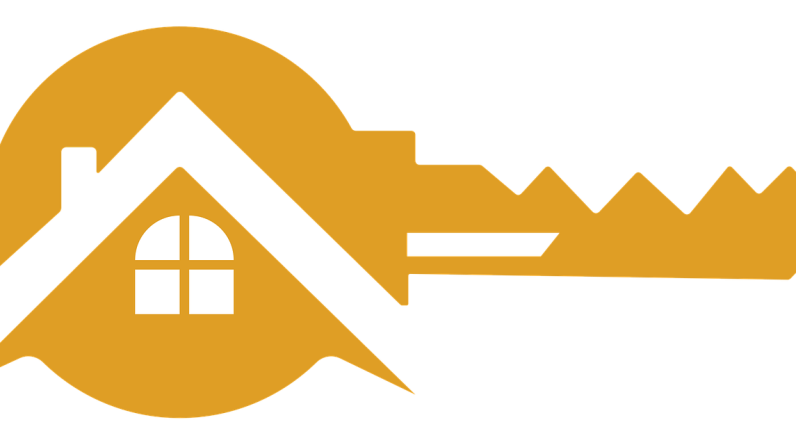
In the video “How I Manage Personal Finances as a Minimalist”, Matt D’Avella shares his own strategies and experiences on managing personal finances. He starts off by discussing his initial financial situation upon graduation, with a staggering $97,000 in student debt. However, through building a profitable business and making wise financial decisions, he was able to open a retirement account and become debt-free. D’Avella uses a personal checking account for regular expenses and a joint account with his wife, while also utilizing the Chase Sapphire Preferred Credit Card for purchases. He emphasizes the importance of starting to invest early for long-term growth and highlights the benefits of compound interest. Throughout the video, he provides insights and advice based on his own journey, while reminding viewers to conduct their own research and find the best financial strategies that work for them.

Table of Contents
Managing Personal Finances as a Minimalist
Using a Personal Checking Account and Joint Account
When it comes to managing your personal finances as a minimalist, one of the first steps is to have a designated personal checking account. This account will serve as the hub for all your everyday expenses and financial transactions. It’s essential to keep track of your income and expenses to have a clear understanding of your financial situation.
In addition to a personal checking account, having a joint account with your spouse or partner can be a smart financial move. This joint account can be used for shared expenses such as rent or utilities. It promotes transparency and teamwork in managing your finances together.
Choosing the Right Credit Card for Purchases
Credit cards can be a useful tool for managing your finances, but it’s important to choose the right one. When selecting a credit card, consider your spending habits and financial goals. The Chase Sapphire Preferred Credit Card is an excellent option for many minimalist individuals. It offers rewards points on purchases and provides benefits for travel and dining. However, it’s crucial to be cautious and responsible when using credit cards.
Opening a Vanguard Roth IRA for Retirement Savings
Planning for retirement is an important aspect of personal finance, and opening a retirement account is a great way to start building a nest egg. One popular option for minimalists is a Vanguard Roth IRA. A Roth IRA offers tax advantages, allowing you to contribute after-tax income and enjoy tax-free withdrawals in retirement. Vanguard is a reputable investment company with low fees, making it a preferred choice for many investors.
Investing in Low-Cost Mutual Funds for Long-Term Growth
Investing in low-cost mutual funds is an effective way to achieve long-term growth and financial stability. By investing in funds that mirror the stock market and maintaining a diverse portfolio, you can increase your chances of earning consistent returns. Over a 30-plus year period, the average return on stock market investments is around 10%. Low-cost mutual funds offer a balance between risk and reward, making them a suitable choice for minimalist investors.
Utilizing an Individual 401k for Additional Investments
If you have your own business or are self-employed, opening an Individual 401k can provide additional investment opportunities. Like a traditional 401k, an Individual 401k allows you to contribute pre-tax income, reducing your taxable income for the year. This means you can save more for retirement while enjoying tax benefits. Vanguard offers an Individual 401k account option, providing a wide range of investment choices.
Emphasizing the Importance of Early Investing
One key principle of personal finance as a minimalist is emphasizing the importance of early investing. Starting to invest early allows you to take advantage of compound interest, which can significantly grow your wealth over time. Even small contributions made consistently can have a massive impact on your financial future. By starting early, you give your investments more time to grow and potentially compound, setting yourself up for long-term financial success.
Acknowledging the Risks and Rewards of Credit Cards
While credit cards can be beneficial, it’s crucial to acknowledge both the risks and rewards that come with using them. Credit card debt is a widespread problem, especially among millennials. Irresponsible use of credit cards can lead to high-interest rates and financial stress. However, when used responsibly, credit cards can offer rewards and benefits such as cashback, travel points, or purchase protection. It’s essential to be mindful of your credit card spending and to pay off the balance in full each month to avoid accumulating debt.
Paying off Credit Card Debts in Full Each Month
To avoid falling into the trap of credit card debt, it’s crucial to make it a habit to pay off your credit card balances in full each month. By paying off the full balance, you can avoid interest charges and maintain a healthy credit score. It’s important to budget and spend within your means to ensure you have the necessary funds to pay off your credit card debts. This responsible approach to credit card usage will help you maintain financial stability.
Highlighting the Benefits of Compound Interest and Long-Term Investing
Compound interest is a powerful force that can greatly impact your long-term financial goals. By investing early and consistently, you can take full advantage of compound interest. Over time, your investments can grow exponentially, allowing you to achieve financial freedom and security. Long-term investments, such as retirement accounts or low-cost mutual funds, provide the best opportunity for compound interest to work its magic. By staying invested and resisting the temptation to withdraw prematurely, you will see the benefits of compound interest firsthand.
Promoting Sponsorship and Encouraging Personal Research
While it’s essential to acknowledge that personal finance strategies are not one-size-fits-all, seeking out reputable resources and sponsors can provide valuable insights. Matt D’Avella’s sponsor, Squarespace, is an example of a reliable platform for building websites that can support your personal or business ventures. However, it’s essential to conduct your own research and find financial strategies that align with your goals and values. Taking the time to educate yourself and seek out trustworthy sources will empower you to make informed financial decisions.
Financial Freedom and Taking Risks
Debt-Free Status as a Source of Relief and Freedom
Becoming debt-free is a remarkable achievement and can bring a sense of relief and freedom to your life. Matt D’Avella’s personal journey of paying off his student debt exemplifies the liberation that comes with becoming debt-free. By eliminating debt, you free up your income for other financial goals, such as saving for retirement or pursuing your passions.
Taking Greater Risks and Pursuing Passions
Being debt-free provides the opportunity to take greater risks and pursue your passions. Without the burden of debt, you have more flexibility in your financial decisions. Whether it’s starting your own business, traveling the world, or investing in personal growth, being debt-free allows you to take calculated risks and explore new opportunities.
Building a Solid Financial Foundation
Before taking significant financial risks or pursuing your passions, it’s crucial to build a solid financial foundation. This foundation includes having a stable emergency fund, managing your expenses wisely, and establishing good financial habits. By focusing on building a strong financial base, you set yourself up for long-term success and stability.
Overcoming Fear and Taking Action
When it comes to personal finance, fear can be a significant hindrance. Many people are afraid to take action or make financial decisions due to fear of failure or uncertainty. However, overcoming this fear is crucial for financial growth and progress. By educating yourself, seeking advice from trusted sources, and taking calculated risks, you can overcome fear and make informed financial decisions.
Investing in Personal Finance as Self-Investment
Investing in personal finance is not just about growing your wealth; it’s also an investment in yourself. By managing your finances wisely, you take control of your future and create opportunities for personal and financial growth. Prioritizing personal finance allows you to live a more intentional and fulfilling life, free from the stress and limitations of financial insecurity.

Conclusion
Managing personal finances as a minimalist involves making deliberate choices that align with your values and priorities. By utilizing personal checking accounts, choosing the right credit cards, and investing in retirement accounts and low-cost mutual funds, you can set yourself on a path to financial freedom. Emphasizing early investing, paying off credit card debts, and harnessing the benefits of compound interest can further enhance your financial well-being. It’s important to acknowledge the risks and rewards of credit cards, pay attention to sponsorship opportunities, and conduct personal research to make informed financial decisions. Achieving debt-free status provides a sense of relief and freedom, allowing you to pursue your passions and take calculated risks. Building a solid financial foundation, overcoming fear, and investing in personal finance as self-investment are essential steps toward achieving financial stability and success.








